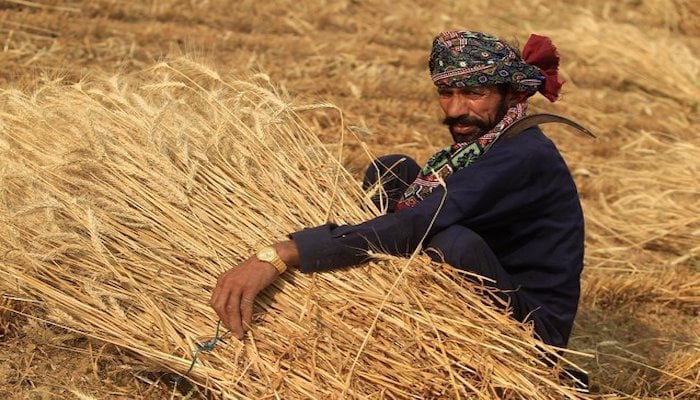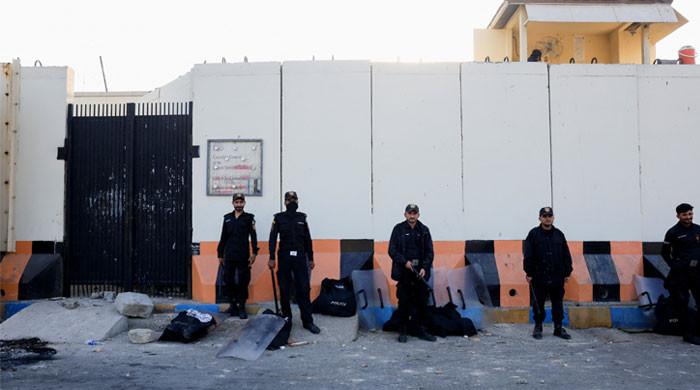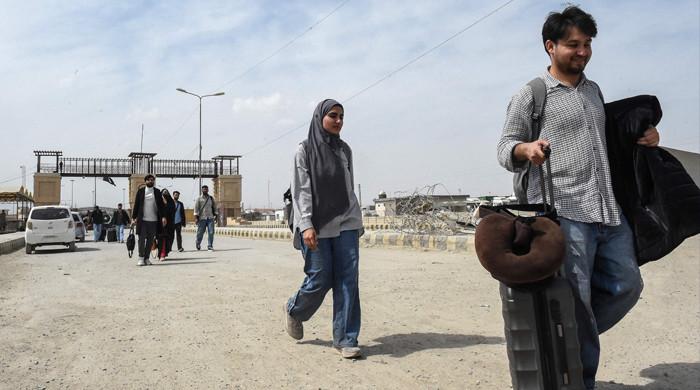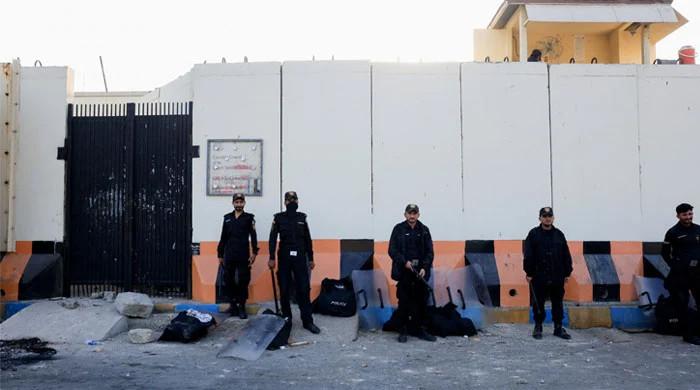Wheat prices set by government invite exploitation, say Sindh farmers
Three different prices to buy wheat have been set by Punjab, Sindh and federal governments
February 24, 2021

- Sindh wheat growers at loggerheads with government over support price
- The increasing prices of chemical inputs and diesel have impacted the price of cultivation
- Sindh growers justify the higher support prices based on this. But consumers want better rates to avoid a burden
HYDERABAD: The wheat prices set by the federal and provincial governments may invite exploitation from traders, believe Sindh's farmers.
The increasing prices of chemical inputs and diesel have impacted the price of cultivation. Wheat producers in Sindh have borne a higher cost of cultivation this year compared to Punjab.
Prices of inputs such as tractors for ploughing, fertiliser, pesticides, and groundwater extraction have multiplied, raising the cost of farming.
Sindh growers justify the higher support prices based on this. But consumers want better rates to avoid a burden.
Read more: Centre holds Sindh responsible for increase in wheat price
Last year, the Sindh growers asked the government to design a comprehensive plan for wheat procurement.
They ask to provide bags to avoid a wheat crisis as the harvest has already started in early cultivation areas like parts of Badin, Umerkot, Tharparkar and Mirpurkhas districts.
The provincial government has failed to set up procurement centres through which they could have collected food grains to avoid the crisis, Sindh Growers Alliance (SGA) President Nawab Zubair Talpur was reported as saying by The News.
“Presently, the poor workers and common people are compelled to buy wheat flour at Rs70-75/kg (in Sindh), despite the fact that Sindh produces more than four million tons wheat every year, and even exports to neighbouring countries to generate an income,” he said.
Read more: NAB recovers Rs10bn in Sindh wheat scam
Three different prices for purchasing wheat have been set.
The procurement price set by the federal government is Rs1,650/maund, Rs1,800/maund by the Punjab government and Rs2,000/maund by Sindh.
This allows traders to manipulate the market, especially in the absence of timely procurement by the government.
Growers also lamented last year’s situation where the Sindh government did not establish procurement centres, leaving them at the mercy of traders, who instead of buying wheat at the set price of Rs1,400/maund, bought the commodity at Rs1,100/maund or even lower.
They highlighted hoarding issues too.
What can consumers expect this year?
Consumers do not have a choice, analysts believe. They say the consumers may stay vulnerable because of unaffordable food products. They predicted traders will inflate prices, which will increase the price of wheat flour too.
Researchers believe that when the same food is available at Rs40/kg in Punjab, despite the same cost of chemical input or overall cultivation, Sindh growers were being indifferent to common consumers.
Read more: How the wheat crisis unfolded across Pakistan
Quoting reports, researchers said that factors responsible for wheat crisis were not just economic, but rather political.
They held corruption and hoarding responsible for the crisis.
Farmers have also expressed their fears regarding government action against landlords who were using forest land for cultivation. To retrieve forest land, the government has been using tractors to destroy standing wheat crop.
Growers warn this could cause long-term repercussions on wheat supply, which would further affect the price of flour.
They asked the government to save the crop through natural mechanisms instead of destroying it in fields in the name of retrieving forest land.











